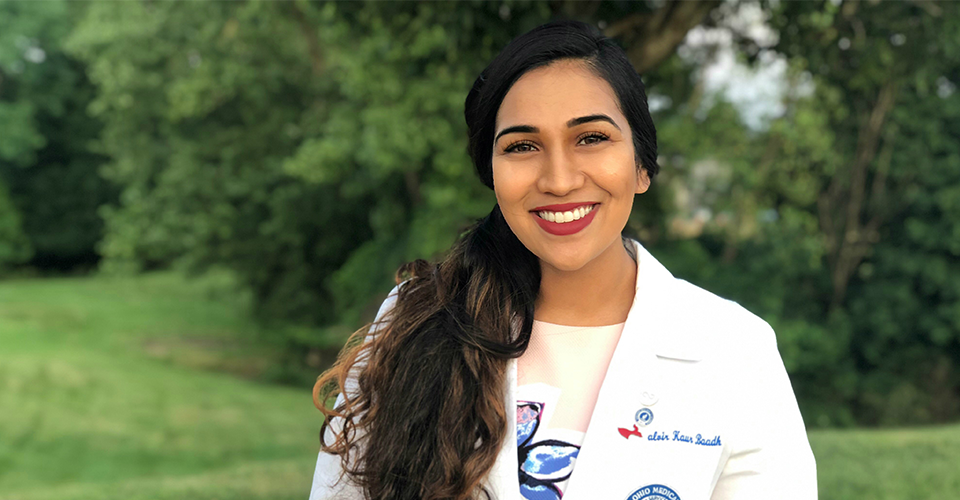With no vaccination yet available, the Hepatitis C virus (HCV) poses a serious global health problem.
Over the summer, second-year College of Medicine student Palvir Baadh worked with HCV-infected and uninfected patients from the Louis Stokes Cleveland VA Medical Center, through an eight-week, paid Summer Research Program (MSSRP) in the Division of Infectious Diseases and HIV Medicine at the Case Western Reserve University School of Medicine.
Baadh’s research will be among that displayed at Northeast Ohio Medical University’s Summer Research Fellowship Program Poster Day, Tuesday, Aug. 20, from 9 a.m.-4 p.m. in the NEOMED Education and Wellness (NEW) Center Ballroom.
If you’d like to ask questions about Baadh’s research or any of the other projects, stop by between noon and 1 p.m., when student researchers will be on hand. No registration is required.
Studying markers
“My research focus was on the Hepatitis C virus (HCV) and soluble markers of inflammation, such as interleukin 6, soluble CD14, soluble CD163, interferon gamma-induced protein 10, and plasminogen activator inhibitor-1. These markers were examined as indicators of liver health and tissue damage, alongside looking at clinical measures of liver health – AST, ALT and albumin, among many other things,” says Baadh.
She collected blood samples for analysis and reviewed patient charts to collect clinical parameters of interest. The main aims of the research were to study markers of monocyte and Kupffer cell activation as indicators of coronary artery disease in both chronic HCV-infected and uninfected patients, accounting for age.
Global importance
“This area of immunology is especially important, since HCV affects millions of individuals worldwide,” says Baadh.
As she explains, the HCV virus can evade the immune system, establishing a chronic infection that can lead to fibrosis, cirrhosis, and hepatocellular cancer. A better understanding of the HCV infection is also important in advancing a more general understanding of the physiopathology of infection. Studying HCV-infected and uninfected patients can shed some light on complex relationships between different clinical parameters and inflammatory biomarkers.
Basic science matters
“Basic science saves people’s lives in a direct way also,” says Baadh. “Learning about cellular pathways is just as important as clinical medicine, and it’s crucial for treatment of diseases. We study fundamental questions to increase our knowledge to guide new therapies and improve lives. Studying little details may seem small in the grand scheme of things, but if millions of lives are affected by HCV, even small findings can have effects on large number of lives.”
Baadh plans to submit for publication in a research journal later this year.
